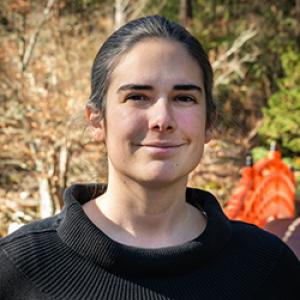
This program is designed to provide postdoctoral fellows with research training devoted to improving care of the anesthetized/critically ill patient by advancing scientific knowledge in the field. The Department of Anesthesiology at Duke University Medical Center has intensively invested its resources in development of multidisciplinary laboratory and clinical research environments to offer state-of-the-art research training experiences. We have also innovated in anesthesiology residency training to provide a research continuum that provides a highly effective preparatory phase prior to T32 enrollment. The T32 program offers a distinguished training faculty (see below for current faculty listing). Additional qualified faculty may be recruited to accommodate areas of research training consistent with trainee research interests.
The T32 training program involves a 2-3 year continuum during which trainees work under the close and direct supervision of a program faculty member on research projects of mutual interest. Emphasis is placed on learning responsible research skills, achieving mastery of the literature, independent hypothesis generation, experimental design, data analysis, presentation of research findings and competition for extramural funding. Trainees are encouraged to exploit relationships established with members of the program faculty for both enrichment of research skill repertoires and development of long-term collaborative relationships.
The Program Director, the Research Council of senior scientists, and the departmental chair, direct the program. Trainees formally report to the program leadership at quarterly intervals for guidance of trainee performance and progress in achieving program goals.
Trainees are sought from a national pool of eligible candidates. The primary focus of this program is the research training of select post-doctoral fellows having the goal of substantive progression toward independent investigator status. The program also is the cornerstone of our departmental research training endeavor setting high standards for investigative training offered to medical students, residents, junior faculty, and visiting scholars who participate in the research training process.
Requisite Qualifications
- Completion of MD (or equivalent) and/or PhD degrees.
- US citizen or permanent resident.
Terms of Training
- The program allows up to 36 months eligibility, with stipends awarded per NIH guidelines based on number of years since completion of terminal degree.
- Qualified individuals may also participate in limited clinical practice.
Duke Anesthesiology T32 Fellowship Interest Form
Our Integrated Training in Anesthesiology Research accepts fellowship applications year-round. We invite all interested applicants to apply by completing the T32 Fellowship Interest Form and joining our long-standing, exceptional research training program at Duke Anesthesiology.
We strongly encourage applications from all groups that have been shown by the National Institutes of Health to be nationally underrepresented in health sciences research training. This includes certain racial and ethnic groups, persons with disabilities, or persons from disadvantaged economic backgrounds, as described above. We accept applications on a rolling basis depending on availability.
Apply for the Duke Anesthesiology T32 Fellowship
For further information, please contact the program director, Miriam Treggiari, MD, PhD.
Meet the Current Trainees
Past Trainees
2024
2023
2022
2021
- Leah Acker
- Michael Devinney
- Christopher Donnelly
- Lisa Einhorn
- Marie-Louise Meng
2020
- Michael Devinney
- Christopher Donnelly
- Kamrouz Ghadimi
- J. Taylor Herbert
- Marie-Louise Meng
- David Williams
2019
- Christopher Donnelly
- Kamrouz Ghadimi
- J. Taylor Herbert
- M. Yawar Qadri
- David Williams
2018
- Christopher Donnelly
- Kamrouz Ghadimi
- M. Yawar Qadri
- Nathan Waldron
- David Williams
2017
2016
2015
Training Faculty
| Name/Degree(s) | Rank | Primary (& Secondary) Appointment(s) | Role in Program | Research Interest |
|---|---|---|---|---|
| Abraham, Soman N., PhD | Professor | Pathology (Molecular Genetics and Microbiology, Immunology) | Faculty | Role of mast cells in innate immunity |
| Coffman, Thomas, MD | Professor | Medicine (Cell Biology and Immunology) | Faculty | Hypertension, molecular pathogenesis of kidney disease |
| Colton, Carol, PhD | Professor | Neurology | Faculty | Mechanisms of Alzheimer’s Disease |
| Crowley, Steven, MD | Professor | Medicine (Nephrology) | Faculty | Hypertension, molecular pathogenesis of kidney disease |
| Habib, Ashraf, MB, ChB | Professor | Anesthesiology (Obstetrics and Gynecology) | Faculty | Obstetric Anesthesia, Acute postoperative pain, persistent pain, optimizing recovery after surgery. |
| Ji, Ru-Rong, PhD | Professor | Anesthesiology (Neurobiology) | Faculty, Research Council | Mechanisms of chronic pain, Neuroinflammation |
| Jordt, Sven-Eric, PhD | Associate Professor | Anesthesiology | Faculty, Research Council | Pain and inflammation |
| Kharasch, Evan, MD, PhD | Professor | Anesthesiology | Faculty | Basic and clinical pharmacology, clinical trials, perioperative pain and analgesia |
| Kontos, Christopher, MD | Professor | Medicine (Cardiology, Pharmacology and Cancer Biology, Cell Biology) | Faculty | Molecular mechanisms of angiogenesis and vascular remodeling |
| Levy, Jerrold, H., MD | Professor | Anesthesiology (Surgery) | Faculty, Research Council | Hemostasis, thrombin signaling, anaphylaxis, acute inflammation, cardiovascular pharmacology |
| Martucci, Katherine, PhD | Assistant Professor | Anesthesiology | Faculty | Chronic pain, opioid use, addiction, and affect – behavior and neuroimaging |
| Mathew, Joseph P., MD, MHSc, MBA | Professor | Anesthesiology | Faculty, Research Council | Mechanisms of cognitive dysfunction after cardiac surgery |
| McMahon, Timothy, MD, PhD | Associate Professor | Medicine | Faculty | Cell signaling by nitric oxide, red blood cell-derived vascular mediators, transfusion medicine |
| Moon, Richard, MD | Professor | Anesthesiology (Medicine) | Faculty | Environmental physiology (hypoxia, altitude, diving), opioid effects on respiratory chemosensitivity, noninvasive monitoring of tissue oxygenation |
| Nackley, Andrea, PhD | Associate Professor | Anesthesiology (Pharmacology and Cancer Biology) | Faculty | Mechanisms of pain onset and resolution underlying chronic 'overlapping' primary pain conditions in mouse and man |
| Newgard, Christopher, PhD | Professor | Pharmacology and Cancer Biology (Medicine) | Faculty | Understanding of metabolic regulatory mechanisms and the application of this knowledge for gaining insights into chronic conditions and diseases such as obesity and diabetes |
| Ortel, Thomas, MD, PhD | Professor | Medicine Director, Anticoagulation Management Service Director, Duke Clinical Coagulation and Platelet Immunology Laboratories |
Faculty | Inherited thrombotic and hemorrhagic disorders, antiphospholipid antibody syndromes, heparin-induced thrombocytopenia, coagulation factor inhibitors, anticoagulant therapy management, hemophilia and other bleeding disorders |
| Podgoreanu, Mihai, MD, FASE | Associate Professor | Anesthesiology | Faculty, Research Council | Mechanisms of myocardial ischemia-reperfusion injury, application of genomic technologies in perioperative and acute medicine, clinical decision support utilizing actionable genomic information, predictive modeling, biomarkers in perioperative medicine |
| Raghunathan, Karthik, MD, MPH | Associate Professor | Anesthesiology (Population Health Sciences) | Faculty | Comparative effectiveness and safety of analgesic and resuscitation procedures using causal inference methods; effectiveness and implementation outcomes of evidence-based nonpharmacologic treatments like perioperative Music Medicine; interventions to reduce inequities in postoperative outcomes |
| Shah, Svati, MD, MHS | Professor | Medicine (Biostatistics and Bioinformatics) | Faculty | Genetics and genomics; Cardiovascular disease |
| Sheng, Huaxin, MD | Associate Professor | Anesthesiology | Faculty | Preclinical therapy development for perioperative organ protection, especially in ischemic brain injury |
| Song, Allen, PhD | Professor | Radiology (Biomedical Engineering, Neurobiology, Psychiatry and Behavioral Sciences) | Faculty | MRI acquisition and analysis methodologies, and their application in neuroscience |
| Terrando, Niccolò, PhD | Associate Professor | Anesthesiology | Faculty | Mechanisms and therapies for postoperative delirium & neuroimmune communication in aging and neurodegeneration |
| Treggiari, Miriam, MD, PhD | Professor | Anesthesiology | Faculty, Program Director | Outcomes research in critical care, subarachnoid hemorrhage, ICU delirium |
| Welsby, Ian, MD | Professor | Anesthesiology | Faculty | Cardiothoracic anesthesia, critical care and perioperative coagulopathy, transesophageal echocardiography, perioperative transfusion |
| Wischmeyer, Paul, MD, EDIC, FASPEN, FCCM | Professor | Anesthesiology (Surgery) | Faculty | Critical care and perioperative nutrition; Recovery from critical illness |
| Yang, Wei, PhD | Associate Professor | Anesthesiology (Neurology) | Faculty | Basic and pre-clinical research on brain ischemia using mouse models of cardiac arrest and stroke |


